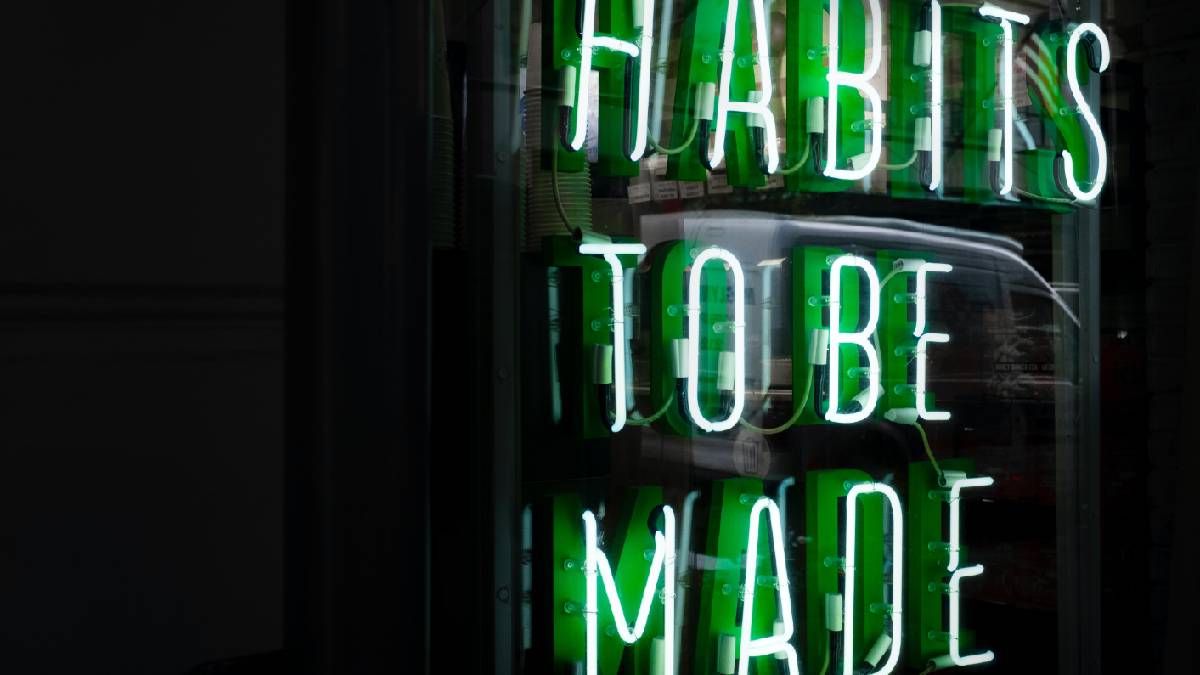
Are Your Problems Due To Bad Habits Or Bad Moods?
Psychologist Asaf Mazar talks about the power of habits, and how to change them.

By Mark Travers, Ph.D. | May 27, 2022
A new study published in Psychological Science argues that, in most cases, our habits can predict our behavior far more accurately than our 'inner states' or our moods. However, we unknowingly and very frequently misattribute our behavior to our inner states.
I recently spoke to psychologist Asaf Mazar of the University of Southern California to understand the reason behind this misattribution. Here is a summary of our conversation.
What is a habit and why are they such an important part of being human?
Habits are shortcuts our brain develops as we repeat an action in a specific situation.
For example, when you repeatedly drink coffee in the morning, your brain learns to pair cues in your morning environment (like stepping into your kitchen) with drinking coffee. Once this habit association is formed, coffee drinking is automatically activated in your mind when you enter the associated context.
Habits are important because they can be activated automatically without conscious thought, which means that habits are often the default response we revert to unless we have a strong desire to act differently.
Habits are also a huge chunk of what we do. A study by my co-author (Dr. Wendy Wood) found that more than 40% of participants' daily behavior was habitual.
What made you want to pick habits and inner states as the subject of your research?
I make myself an espresso every time I come to work. One day as I was sipping on my morning coffee, a friend asked me if I was tired.
I instinctively said yes, but when I really thought about it afterward, I wasn't tired at all — I made myself coffee simply because that's what I always do when I come to work. I went to my advisor, Wendy Wood, and we turned this idea into the first study in our paper.
What was the methodology of your study? What would you say was your most important finding?
In our first study in this paper, we asked coffee drinkers to estimate the extent to which they drink coffee out of tiredness versus out of habit. Most said that tiredness was much more important than habit in driving their coffee drinking.
But when we tracked those same people's behavior over the course of a week, we found that people drank coffee out of habit just as much as they did out of tiredness.
In other words, people underestimated the influence of habit on their coffee drinking and overestimated the influence of fatigue.
This suggests that we might fail to recognize how habits shape our behavior.
Why do you think people tend to value inner states over habits as predictors of behavior?
The tricky thing about habits is that sometimes — for example, when we are highly motivated, focused, and aren't in a time crunch — we can override our habits and act flexibly.
It's easy to think that if we can control our habits once then we can control them all the time. But in reality, it's fiendishly difficult to monitor habits 24/7, so in the long run, we often end up rebounding to the easy, habitual choice.
Another factor that could play a role is that American culture emphasizes goals, intentions, and feelings, so Americans are not used to explaining behavior in terms of habits.
It would be interesting to examine this question in the context of other cultures that might not have the same strong focus on inner states.
What advice would you have for an individual who wants to break a pattern of behavior but does not know whether it stems from a habit or an inner state? What would you want a layperson to take away from your research?
The most effective way to change habits is to design environments in a way that supports good habits and impedes bad habits.
Our recent research centers on friction, or (seemingly) minor obstacles that stand in the way of a behavior. We find that friction can exert an outsized influence on behavior, but people tend to underappreciate its effects when trying to change their habits.
Of course, changing environments is not only up to individuals. People that have sway over our living environments — like policymakers and companies — need to ensure that spaces are designed in a way that makes the right choices easy.
For example, we know that indoor smoking bans in the U.S. were effective at reducing smoking, which makes sense because these bans increase friction on smoking.
What could be the long-term effects of such misattribution on one's life/behavior/health?
If we keep thinking that behavior is driven by inner states, we'll keep trying to regulate behavior by regulating inner states. But, in the case of habits, this approach won't cut it, since habits can persist even when we intend to act differently.
For instance, Dr. Guy Itzchakov has interesting research showing that even when you successfully persuade people that soda is bad for them, they can keep drinking soda habitually.
This misconception has systemic effects as well. Some of our recent research finds that people who overestimate the influence of beliefs on turnout are less likely to support policies that make voting easier, like automatic voter registration.
Those people seem to think that if your inner states (like beliefs and goals) are strong enough, no obstacle should stop you from voting.
